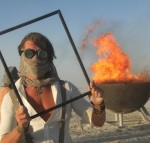Slouching towards Bethlehem
“The blood-dimmed tide is loosed, and everywhere
The ceremony of innocence is drowned;
The best lack all conviction, while the worst
Are full of passionate intensity.”W. B. Yeats
May I be so bold as to propose that the video itself – no matter how crude or ill-judged – is of little significance here. The same can be said for its obscure origins.
For one, I question whether many of the angry men looting Western embassies under the grim glare of burning flags have seen the video. Nor would it make much difference if it turns out that it was produced by Copts, Israelis, Buddhists, rednecks, or even Islamic provocateurs (as was the case in the recent blasphemy furore in Pakistan).
What’s important is that anyone with a camera, an internet connection, and an agenda could have made this, or something just as offensive to the religious sensibilities of one group or the other. Welcome to the 21st century. The message is cheap to make and easy to distribute. And there will always be someone with a vested interest in fermenting rage and conflict – whether for personal gain, personal satisfaction, or just for lulz. As the human population grows, so doe the number of trolls and cretins – a casual stroll through the YouTube comments section is easy proof of this.
It would be too easy to dismiss the current flare-up of violence as the result of a particularly moronic bit of hateful rabble-baiting. But it’s not this particular video that is at issue, and we cannot dismiss the larger issue as easily as we can dismiss this video.
Let us step back from the examples of crass provocations intended to cause offence and violence. Let us suppose that this was not a half-assed video put together by a fraudster with a penchant for religious hatred.
What if instead was a different video – a legitimate work of art? Art and satire have often been at the forefront of political and social progress – both have an uncanny way of exposing the rotten cores of social edifices and political paradigms. What should we do with such political art if it may cause anger and violence? Does the foreseeability of harmful reaction mean that we ought to abstain from the action itself?
Even without being political, art can often become such. Much of what is happening now is similar to the unfolding of the fatwa issued by Ayatollah Khomeini against Salman Rushdie after the publication of The Satanic Verses in 1989. Which was not a political book in itself. It was a work published in the west that was not in line with the dogmas of Islam. A distorted version of its alleged blasphemies spread to the clerics in the East, who without reading the book condemned it. The clerics passed an even more distorted version of it to the angry rabble in the streets. Embassies were burned. Lives were lost. Arguments were made that the embattled author is responsible for the ensuing violence since he should have “seen it coming”. Sound familiar?
Break a wasp nest and you should expect to get stung. Break a wasp nest next to a bystander and you’ve caused him to be stung. Break a wasp nest inside a bus full of orphans and you’re likely to go to jail. Say something bound to offend someone on the other side of the world and you should expect them to embark on an orgy of violence and destruction. Not just that, but the blood of innocents is on your hands. Shame on you. You should have seen it coming.
What a despicable, denigrating argument this is. Wasps are wasps – they neither possess conscience nor can choose their reaction. To apply the wasp nest argument to a mob of Salafists is to postulate that a religious radical’s natural reaction to what may have been a joke is to burn and kill. To make this argument is to renounce the fact that humans are independent agents with the power of free will and the gift of conscience. Can the underlying premise of such argument coexist with humanism and western liberal thought?
Or perhaps there is something exceptional about Islamic radicals that makes their sensibilities much more tender? Maybe it’s a historical inferiority complex, maybe it’s the anathema of dishonour and blasphemy incomprehensible to us, amoral Occidentals, or maybe it’s a sort of Hobbesian violence intrinsic to a society fraught by centuries of strife. Either of these seems like apologia for inexcusable conduct. And neither is compatible with the much vaunted claim that Islam is a religion of peace. The Onion, in a crass display of saucy libertinism published this rather graphic cartoon (warning, NSFW).
Yes, it is designed to offend. But balk as you may at the image on Ganesh fisting Buddha, there is a point here. If we assume that the rest of the world’s religions, even in their most radical extremes, will not be riled up to wanton bloodshed and destruction by the mere act of blasphemy, then what justification can we have for assuming that such reaction is normal from the followers of the Prophet? And if we are comfortable making that assumption, does this not mean that something is rotten in the state of Dar-al Islam?
The possibility of a violent reaction should not, in itself, be a deterrent to taking the action. Especially where the action aims to expose an issue. Especially where the presumed “naturalness” of the violent reaction is part of the issue.




